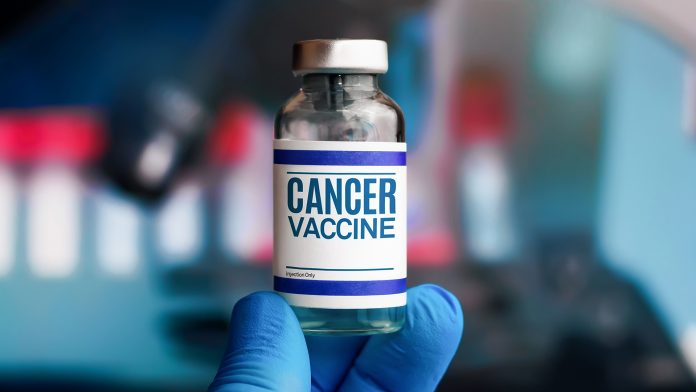
The UK Government has established a historic agreement with German-based BioNTech SE for cancer vaccine trials.
The groundbreaking deal will improve access to cancer vaccine trials for UK patients, providing them with cutting-edge treatments to combat the disease.
The agreement builds on a memorandum of understanding signed in January with BioNTech – who previously pioneered the COVID-19 vaccine with Pfizer.
Commenting on the momentous development, UK Prime Minister, Rishi Sunak, said: “This landmark new agreement takes us one step closer to delivering life-saving new cancer treatments for thousands of patients right across the country.
“The UK is a global leader in life sciences – helping to create thousands of highly skilled jobs and pioneering research – and it is a testament to this success that BioNTech have chosen to make this significant investment here today.
“Personalised cancer vaccines have the potential to completely revolutionise the way we treat this cruel disease, and it is hugely welcome that, thanks to today’s announcement, clinical trials will be rolled out widely.”
How will the deal improve access to cancer vaccine trials?
The long-term agreement will ensure that UK patients have access to the latest cancer vaccines, including UK-based clinical trials to help patients with precision immunotherapies that stimulate the immune system to kill cancer cells.
BioNTech has already started performing cancer vaccine trials in the UK, with additional trials launching once the majority of patients are enrolled from 2026 onward.
BioNTech intends to establish new laboratories in Cambridge comprising more than 70 highly-skilled scientists and a new regional hub in the UK to help deliver this research.

Echoing the Prime Minister’s delight at the deal, Secretary of State for Health and Social Care, Steve Barclay, added: “This partnership is a huge step forward in the fight against cancer.
“By working together with BioNTech on these innovative treatments, we can make progress and save lives, and I’m excited by the potential these trials have to both treat patients with cancer and those who have had it to stop it from returning.
“This further demonstrates that the UK is an attractive location for innovative companies to invest and pioneer cutting-edge treatments for our patients and underlines this government’s commitment to research and development.”
CVLP will help recruit trial participants
NHS England and Genomics England will collaborate to develop a new Cancer Vaccine Launch Pad (CVLP) to rapidly identify cancer patients who will be eligible for the cancer vaccine trials.
The CVLP will create a database of suitable NHS cancer patients who will be invited to take part in personalised cancer vaccine trials.
The project aims to help patients with early and late-stage cancers. Successful vaccines could eventually become part of standard care.
What treatments will be targeted?
The cancer vaccine trials will focus on personalised mRNA-based cancer immunotherapies.
This treatment activates the patient’s immune system and can be designed to target shared abnormalities in specific cancer types or can be tailored to a patient’s tumour.
These personalised immunotherapies are developed by examining a patient’s tumour to assess mutations specific to their cancer.
This once time-consuming process will be streamlined by the partners involved to make cancer vaccine trials as efficient as possible so that new therapies can be available to UK patients in record time.
Professor Uğur Şahin, MD, Chief Executive Officer and co-founder of BioNTech, concluded: “We are truly honoured to be an integral part of this landmark partnership, alongside the UK government, NHS England, Genomics England, and the National Institute for Health and Care Research.
“The United Kingdom’s expertise in genomic analyses in cancer patients is a critical component of our shared endeavour to make mRNA-based and precision cancer immunotherapies widely accessible through clinical trials.
“If successful, this collaboration has the potential to improve outcomes for patients with cancer not just in the UK, but also worldwide.”

























